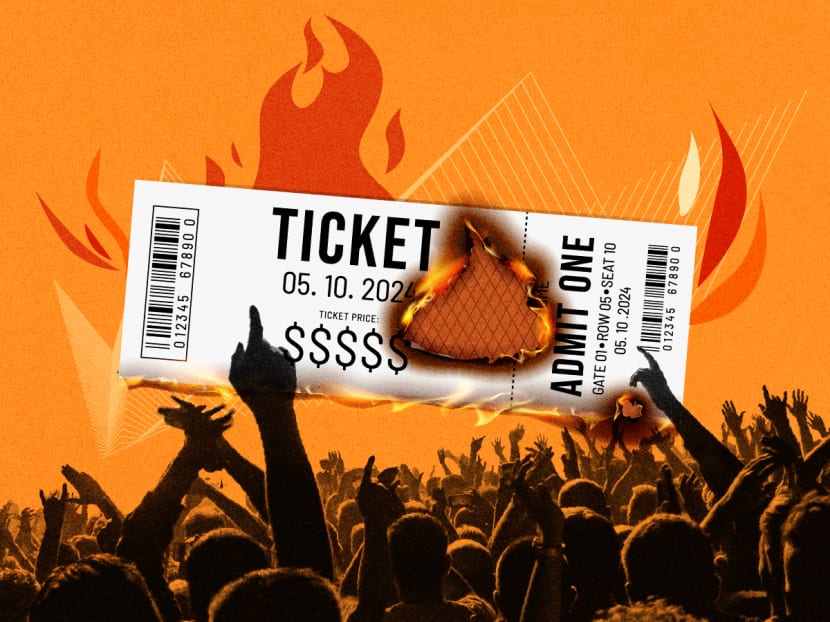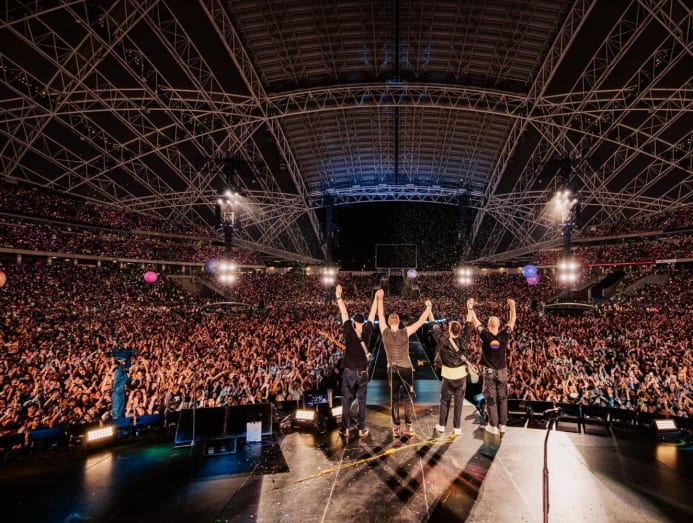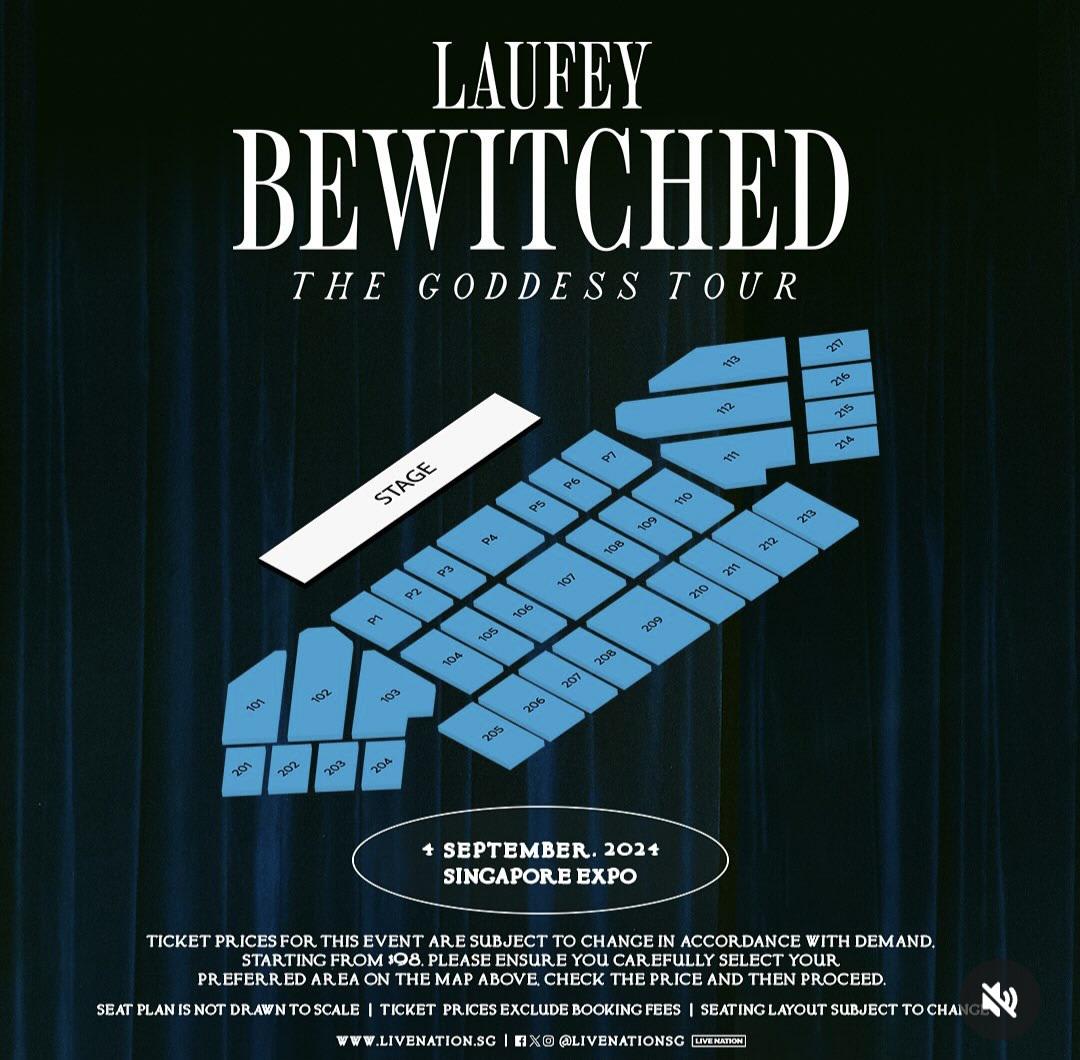Hot Take: Surge pricing for concerts and live shows may aim to put off scalpers, but punishes genuine buyers instead

On May 12, TODAY published an article on increasingly heated ire among attendees of concerts and live performances in Singapore. Fans of Icelandic jazz-pop singer Laufey and popular musical Hamilton were up in arms — not about their favourite acts coming to town, but about the exorbitant prices they were facing on ticket purchase sites due to dynamic pricing.
Reactions to the story — penned by yours truly — threw oil onto the fire surrounding the rise of dynamic pricing for such events in Singapore, reigniting the debate on whether such a pricing model is reasonable, or even acceptable.
CASH GRAB
In theory, dynamic pricing means prices will rise when there is high demand, and drop when there is little to no demand.
But high demand is typical for such events in Singapore — Taylor Swift fans queued overnight for her tickets outside Singpost and Coldplay’s six shows sold out within hours.
Major ticketing and promoter companies claim that dynamic pricing guards against scalping. However, many members of the public see the use of this model as these companies turning into "scalpers" themselves, forcing much higher prices onto ticket buyers than usual.
Several also questioned if dynamic pricing was the best solution to deal with both high demand and scalpers. They asked: What about a lottery-style sale instead?
In lottery-based sales in places such as Japan and Taiwan, tickets are tied to buyers' identity numbers or passport numbers. Some venues do not reveal seat numbers until a few days before the event, making it harder to resell tickets, pointed out netizens.
With so much uncertainty around how dynamic pricing will hike up entertainment tickets, some also said they would not attend any event with such a volatile model.
Some in this camp predicted that such a pricing model might eventually drive many others away from going to concerts, and warned of dire impacts on Singapore's burgeoning concert industry in the long run.

LUXURY GOOD
On the other hand, another faction argued that the rage over dynamic pricing for entertainment events was ridiculous. Basically: If you can't afford it, just don't attend.
"Why (are) Singaporeans complaining? A concert is a luxury," said one Facebook user. "Do not chase a lifestyle that (you can't afford)."
Another labelled the use of dynamic pricing for entertainment events a "rich people problem".
Some called the backlash ironic. After all, they said, dynamic pricing is not new in Singapore. Demand-based pricing has long been commonly used to price services like air travel, food delivery and ride-hailing.
A few also agreed with Ticketmaster and other ticketing companies that dynamic pricing is a reasonable way to deal with scalpers. With prices less predictable, scalpers have to take a higher risk when purchasing tickets to resell.
Should a scalper purchase a ticket that is too expensive, they may struggle to resell the ticket and end up making a loss, especially if demand falls off sharply after some time.
ON THE RIGHT TO HAVE FUN
So why should most of us care about how tickets for entertainment events are priced, especially if they are a "luxury"?
Considering this question, it's important to note that concerts and live performances were not necessarily luxurious goods up until quite recently.
In 2003, the most expensive ticket for a joint concert by UK bands Travis and Coldplay in Singapore was S$101. Adjusted for inflation, that's about S$128.39 today. Conversely, Coldplay's most expensive ticket for their 2024 concert here was S$1,098.
Of course several factors, including different venues and theatrics used, contribute to pushing prices up over the years. But with dynamic pricing in the mix, concerts might soon become real luxuries most of us won't be able to afford.
Should this be the case though? Surely we all deserve to have some fun in our lives — something that helps us break free from the monotony of everyday humdrum. Life should not just be about meeting the basic needs of physical sustenance.
Realistically, however, nothing is stopping entertainers, promoters and organisers from implementing dynamic pricing. Hence, the next best thing could be guidelines to ensure consumer rights are protected.
One way to go about it? Price transparency.
In the case of Laufey's show, other than being told prices were "starting" at S$98, fans essentially had to go into the ticket-purchasing process blind.
In place of the typical colour-coded seat map with different price categories, this particular all-blue seating map said only that prices started from S$98 and were "subject to change in accordance with demand".
Some Laufey fans ended up paying upwards of S$268 for a ticket to see the 25-year-old singer perform.

While some were willing to spend that sum, many were still upset that there had been no way to know ticket prices in advance until they were well into the seat selection process last Monday and Tuesday during the ticket sales.
One fan also told me that they had to skip the concert when they realised the final prices were out of their budget.
To make dynamic pricing more equitable, event organisers should maintain the offering of differently priced categories, as well as implement a suitable price cap for each category so consumers can manage their own expectations of what they're willing to pay.
Ticket buyers also deserve more clarity on exactly how dynamic pricing is calculated for each event.
Additionally, entertainment organisers and promoters should be required to have safeguards in place to prevent bots from artificially inflating demand — or, better yet, not allow bots to access their website at all.
Whatever happens, I hope it won't cost me a kidney to see Taylor Swift live the next time she drops by. And if it does, you might find me with one less kidney.
Or, more realistically, in “Category 100” — on a picnic mat outside the National Stadium with my organs intact.
ABOUT THE AUTHOR:
Loraine Lee is a journalist at TODAY.









